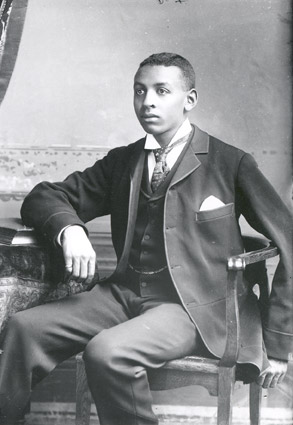±«Óãtv JRJ Chair
The JAMES R JOHNSTON CHAIR celebrates its 25th anniversary and 30th anniversary of the JRJ Chair Endowment during the 2021-2022 academic year. Click here for more information and to register for the upcoming celebration events!
Ìý
The James R. Johnston Chair is named after Mr. James Robinson Johnston. ÌýMr. Johnston was an African Nova Scotian man and the first African Nova Scotian to earn a degree from ±«Óãtv in 1896. In fact, he was the first African Nova Scotian person to graduate from any university. Upon his graduation from law school, Mr. Johnston became the first Black lawyer to practice law in Nova Scotia. James R. Johnston worked across the province of Nova Scotia and provided his legal representation to many. Unfortunately, he died tragically in 1915, just days before his 39th birthday.
Ìý
In 1991, nearly a century after Mr. Johnston studied at ±«Óãtv, and in honor of his many accomplishments, ±«Óãtv University established the James R. Johnston (JRJ) Chair in Black Canadian Studies, at the time, the only endowed Black Studies Chair at a Canadian university. Through a public-government collective effort jointly developed between the institution and many individuals, the JRJ Chair was established with the support of an endowment (Thornhill np), of which the funds are also to be used in support of curriculum development, visiting lectures, and a special library collection.
The James R. Johnston Chair is a significant senior academic post in Canada, based in Halifax to honour not only the life of Mr. Johnston, but also to recognize and honour the unique historical presence of African Nova Scotian people.
The goal of the Chair is to develop and advance the field of Black studies in Canada, while also fostering the understanding of the diversity of Blackness through research to produce significant scholarship, national networks, and teaching and to build bridges and connections between academia and African Nova Scotian communities. However, the Chair is also unique in that each 6-year appointment occurs in a different faculty and academic unit. Demonstrating that Black Studies exists outside of the disciplines within humanities and social sciences, and is an interdisciplinary field of study and a multi-method theoretical intervention.
For biographies on the previous chairs, click here.

